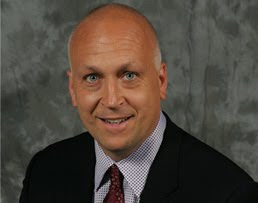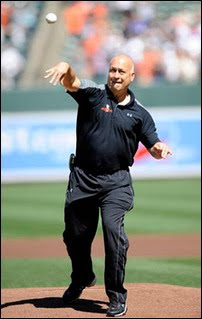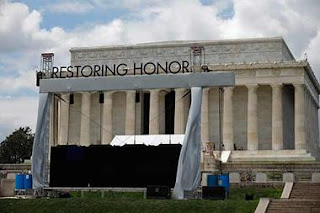 Richmond, Va. -- Marilyn Kay Plantz, executed in 2001 by the state of Oklahoma, persuaded her younger lover and his pal to kill her husband for insurance money and stood by as they brutally did so.
Richmond, Va. -- Marilyn Kay Plantz, executed in 2001 by the state of Oklahoma, persuaded her younger lover and his pal to kill her husband for insurance money and stood by as they brutally did so.Two years later, Teresa Lewis of Pittsylvania County wound up on Virginia's death row for a strikingly similar crime.
More than 1,200 men have been executed in the U.S., since the death penalty resumed in 1977. If she is put to death as scheduled Sept. 23, Lewis will be just the 12th woman and the first in Virginia in almost a century.
It is a gender gap that largely, if not entirely, can be explained by the relatively few capital crimes committed by women.
The accompanying acts that frequently qualify murders as death-eligible crimes -- such as rape and armed robbery -- overwhelmingly are committed by men.
Mary Atwell, a professor of criminal justice at Radford University and author of "Wretched Sisters: Gender and Capital Punishment," says it is no accident that Lewis, Plantz and their crimes have much in common.
Like many of their male counterparts, females sentenced to death often have histories of substance abuse and mental-health issues.
Unlike men, women usually kill intimates, not strangers. So, too, did Plantz and Lewis.
"There are so many similarities it's almost uncanny," Atwell said. Among other things, she said, "both of these women had borderline mental retardation and yet they were accused of being the mastermind in the case."
 Masterminds or not, the murders were savage.
Masterminds or not, the murders were savage.
Plantz's husband, James, 33, had $300,000 in life insurance. Court records show that when he returned home early one morning, he was beaten with baseball bats by his wife's lover, William Bryson, and his friend Clinton McKimble, both 18.
Plantz, in her late 20s, was in a bedroom. Her husband still was alive when Bryson and McKimble later set him on fire in his pickup truck.
In Lewis' case, the court records show she persuaded Matthew Shallenberger, with whom she had a sexual relationship, and his friend, Rodney Fuller, to murder her husband, Julian Clifton Lewis,Jr., 51.
Her husband's son from a prior marriage, Charles J. Lewis, a soldier visiting home, had a $250,000 life insurance policy that Teresa Lewis would receive if the two men died.
It took repeated shotgun blasts to kill the father and son in their beds early on the morning of Oct. 30, 2002, while Lewis waited in the kitchen of the family's Pittsylvania trailer. She provided the $1,200 to buy the murder weapons and left the trailer door unlocked so the killers could enter.
Atwell said insurance money often is the motive in cases where women face the death penalty, and it appears to be one of the things that courts consider a vile aspect of such crimes, she said.
"Maybe because it's a sort of betrayal of trust," she said.
In Virginia, before imposing a death sentence, a judge or jury must decide if a killer remains so dangerous that he or she requires execution, or that the crime was so vile that it warrants execution.
Lewis, Shallenberger and Fuller all pleaded guilty, Fuller with the understanding he would receive life in exchange for his cooperation.
Before sentencing Shallenberger on July 11, 2003, Judge Charles Strauss said, "This is a murder for hire which, just the thought of that, sends chills through most of us."
But, Strauss said, "it's not just a business killing. This is a murder that involves so many other things. . . . It's laced with nightmarish violations of trust, respect, love, the bonds of matrimony that existed between Mr. and Mrs. Lewis for a man she vowed to love and cherish.
"There is no question in the court's eyes that she is clearly the head of this serpent."
Strauss said he could not sentence Shallenberger to death if the other shooter received life.
Lewis, said Strauss, "was in a league all her own." The judge said of the crime, "Unfortunately it reminds us of what man is capable of doing, even to ones they're intimate with."
Atwell said that if there is sometimes a reluctance to sentence women to death, "the other side of that issue is that when a woman is perceived by a court -- judge, jury, prosecutors, whoever -- as having really violated what I call 'gender expectations,' that that makes her more worthy of death."
Among other things, Plantz and Lewis both were cheating on their husbands with younger men.
"The vileness standard is subjective," Atwell said. If a murder is particularly vile, she contends, "it could be more of an argument for punishing the actual killer. In these cases, the 'vileness' was connected to the idea of being a 'mastermind' of a merciless killing, and it is doubtful that either woman could be a mastermind."
David N. Grimes, the Pittsylvania commonwealth's attorney, strongly disagrees where Lewis is concerned.
"If there's a hierarchy of evil among the three, I had no question that she was at the top, with Shallenberger fairly close behind," he said. Grimes also sought the death penalty for Shallenberger.
"She manipulated them and manipulated the whole works. She is the one who determined how they would be killed and when they would be killed."
Shallenberger was 22 at the time, Fuller was 19, and neither had much of a criminal record. Lewis was 33 and had been convicted of forging a prescription.
If nothing else, Lewis might have saved her wounded husband's life by promptly reporting the shootings, which were staged to look like a robbery, Grimes said.
"It was the better part of an hour before she even called," he said. "She was calling it in like there was an intruder who had done all this and didn't mention to anybody that the husband was still alive and that he might need medical help," he said.
"We believe he was conscious throughout and horribly wounded and possibly could have been saved. He died from blood loss; he didn't die from any particular organ being damaged."
Atwell says that while Lewis "may have set the events in motion and delayed in calling for help, the real brutality was done by others."
Lewis' lawyers contend that Shallenberger, who committed suicide in prison in 2006, was the mastermind and have a letter he wrote in which he says the crime was his idea.
They argue that Lewis, who has a low IQ and a personality disorder, could not have been the mastermind, and an affidavit from Fuller says Shallenberger was in charge of Lewis.
Her lawyers cite the cases of two Virginia women who committed similar crimes and received life sentences.
According to the evidence, in addition to her relationship with Shallenberger, Lewis also had sex with Fuller, as did Lewis' then-16-year-old daughter.
After her husband was shot but still was alive, Lewis entered the bedroom, retrieved his pants and wallet, and divided the money with Shallenberger and Fuller.
"The women who are executed, in every case, they've been portrayed in the court and in the press usually as not real women -- they were promiscuous, they were bad mothers, they violated the norms that were expected of women. Not only did they kill . . . but they did something that was beyond what a normal woman would do," Atwell said.
"It's not just that she killed her husband, but she violated all these other rules of behavior as well," Atwell said of Lewis.
Grimes, however, sees ample cause for a death sentence for her role in the murders alone.
Lewis' lawyers will not permit her to be interviewed by the news media. She is being held in segregation at the Fluvanna Correctional Center for Women. She has an appeal and request for a stay of execution before the U.S. Supreme Court and a clemency petition before Gov. Bob McDonnell.
Fuller, an inmate at Sussex I State prison, declined to be interviewed.

 Though it seems doubtful that anyone will ever break Ripken's record, the man who played every game for 16 straight seasons in a 21-year career thinks it can be done.
Though it seems doubtful that anyone will ever break Ripken's record, the man who played every game for 16 straight seasons in a 21-year career thinks it can be done. "Buck turns on my baseball brain," Ripken said. "I had a chance to sit and talk with him when he came up to Aberdeen to watch [Manny] Machado up there perform. Our conversations wouldn't be that interesting to other people. I always thought Buck was one of the best baseball guys I ever had a chance to talk to. I still have my timetable… and I still value the flexibility and the time that I have now, and you wouldn't have that if you came back to the big-league scene."
"Buck turns on my baseball brain," Ripken said. "I had a chance to sit and talk with him when he came up to Aberdeen to watch [Manny] Machado up there perform. Our conversations wouldn't be that interesting to other people. I always thought Buck was one of the best baseball guys I ever had a chance to talk to. I still have my timetable… and I still value the flexibility and the time that I have now, and you wouldn't have that if you came back to the big-league scene."





 "May this day be the change point," she said. "Look around you. You're not alone. You are Americans!"
"May this day be the change point," she said. "Look around you. You're not alone. You are Americans!" "People are upset with the direction of the country," says Patti Weaver, head of the Pittsburgh Tea Party, who is bringing 900 people on 16 buses to the event at the
"People are upset with the direction of the country," says Patti Weaver, head of the Pittsburgh Tea Party, who is bringing 900 people on 16 buses to the event at the  Thelma Taormina of Houston, who has organized two busloads from Texas, says she's concerned that the
Thelma Taormina of Houston, who has organized two busloads from Texas, says she's concerned that the  Sharpton says he'll avoid confrontations with Beck supporters. "We don't want to make the day about them," he says. "We want to make the day about 'the dream.'
Sharpton says he'll avoid confrontations with Beck supporters. "We don't want to make the day about them," he says. "We want to make the day about 'the dream.' 
 The police came to the home within five minutes and began performing cardiopulmonary resuscitation, officials said. But it took nine and a half minutes — almost twice the national goal of arriving within five minutes — for the fire engine, with a paramedic and more medical equipment, to get there. An ambulance came moments later and took Bentley to the hospital, where he was pronounced dead.
The police came to the home within five minutes and began performing cardiopulmonary resuscitation, officials said. But it took nine and a half minutes — almost twice the national goal of arriving within five minutes — for the fire engine, with a paramedic and more medical equipment, to get there. An ambulance came moments later and took Bentley to the hospital, where he was pronounced dead. “This is generally due to a reduction in firefighting personnel available for responding to calls, a reduction in the number of responding fire apparatus, and gaps in the optimal deployment of apparatus or deficiencies in firefighter training programs,” Mr. Waters said in a statement.
“This is generally due to a reduction in firefighting personnel available for responding to calls, a reduction in the number of responding fire apparatus, and gaps in the optimal deployment of apparatus or deficiencies in firefighter training programs,” Mr. Waters said in a statement.
 Lynn did not disclose what, if any, military secrets may have been stolen in the 2008 penetration of the system, what nation orchestrated the attack, nor whether there were any other repercussions.
Lynn did not disclose what, if any, military secrets may have been stolen in the 2008 penetration of the system, what nation orchestrated the attack, nor whether there were any other repercussions.









